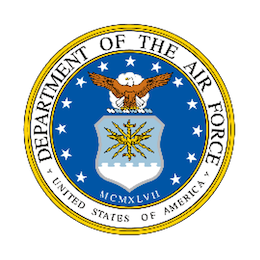Air Force Officer Qualifying Test (AFOQT) Overview
The Air Force Officer Qualifying Test (AFOQT) is a crucial evaluation tool used to assess candidates for various officer commissioning programs, including Officer Training School (OTS) and Air Force Reserve Officer Training Corps (AFROTC). Administered by Pearson VUE under the auspices of the U.S. Air Force, the AFOQT plays a significant role in selecting applicants for specialized training programs, such as pilot and navigator training.
Key Details about the AFOQT
Test Structure and Duration
- Format: The AFOQT consists of 516 multiple-choice questions distributed across 12 subtests.
- Duration: The total test time is approximately five hours, including breaks. Each subtest is timed, with time limits varying by section.
Subtests and Content Areas
- Self-Description Inventory (45 minutes, 240 questions): Assesses personality traits. Note that this subtest is not scored.
- Verbal Analogies (8 minutes, 25 questions): Evaluates verbal reasoning through analogy questions.
- Arithmetic Reasoning (29 minutes, 25 questions): Tests problem-solving skills involving arithmetic, geometry, ratios, and percentages.
- Word Knowledge (5 minutes, 25 questions): Measures vocabulary and the ability to understand word meanings and synonyms.
- Math Knowledge (22 minutes, 25 questions): Assesses basic math skills, including algebra and geometry.
- Reading Comprehension (24 minutes, 25 questions): Tests the ability to understand and interpret written passages.
- Situational Judgment (35 minutes, 16 questions): Evaluates decision-making and leadership skills in various scenarios.
- Physical Science (10 minutes, 20 questions): Covers high-school-level physical science concepts, including forces and physical laws.
- Aviation Information (8 minutes, 20 questions): Tests knowledge of aviation principles and flight mechanics.
- Instrument Comprehension (5 minutes, 25 questions): Assesses the ability to interpret aircraft instruments.
- Table Reading (7 minutes, 40 questions): Evaluates skills in reading and interpreting graphs.
- Block Counting (5 minutes, 30 questions): Tests spatial reasoning through 3D block counting tasks.
Eligibility and Scheduling
- Voucher Requirement: A voucher code is necessary to schedule the AFOQT. Obtain this code from your recruiter or test control officer.
- Registration: Candidates must validate their name and email address before the test. For more information, visit the AFOQT Candidate Information page.
- Test Scheduling: Schedule your appointment through Pearson VUE, with options for both test centers and online proctoring.
Identification Requirements
- Ensure your name matches exactly with the one on your ID and your application file. Discrepancies may prevent test center admission.
- For further details, review the Pearson VUE ID Policy.
Score Interpretation
- AFOQT scores are not based on raw scores but rather on composite scores derived from various subtests. These scores predict potential success in Air Force training programs.
Retake Policy
- Candidates may retake the AFOQT if necessary. The test is free, but a maximum of three attempts is allowed, with an approved waiver required for additional attempts.
Preparing for the AFOQT
Study Resources
- Official Guide: Review the AFOQT Candidate Guide for detailed information on the test structure and preparation tips.
- Practice Materials: Utilize practice tests and study guides to familiarize yourself with the test format and question types.
Tips for Success
- Understand the Format: Familiarize yourself with the types of questions and timing for each subtest.
- Practice Regularly: Use practice exams to improve your pacing and identify areas for improvement.
- Seek Support: Consult with your recruiter or test control officer for guidance on test preparation and scheduling.
By adhering to these guidelines and preparing effectively, candidates can enhance their chances of achieving a strong AFOQT score, paving the way for a successful career in the U.S. Air Force.




